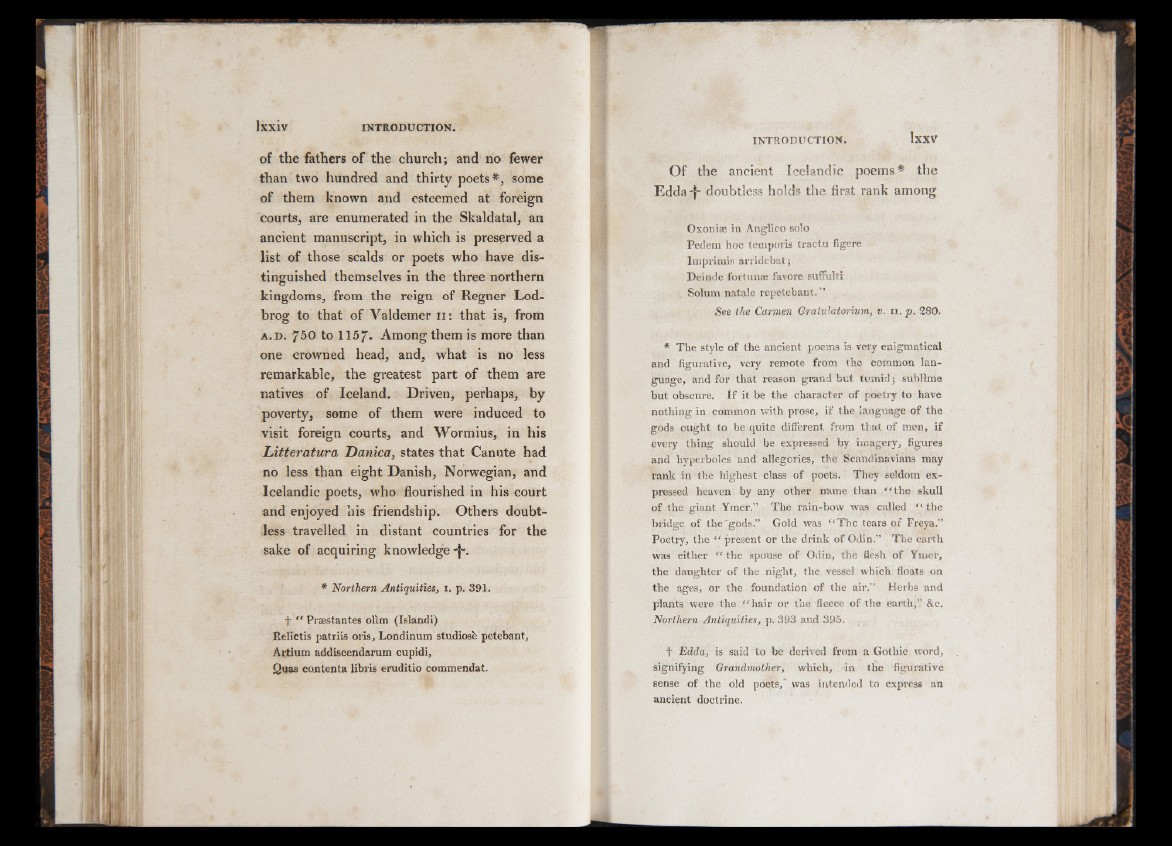
of the fathers of the church; and no fewer
than two hundred and thirty poets*, some
of them known and esteemed at foreign
courts, are enumerated in the Skaldatal, an
ancient manuscript, in which is preserved a
list of those scalds or poets who have distinguished
themselves in the three northern
kingdoms, from the reign of Regner Lod-
brog to that of Valdemer u : that is, from
a . d . 7^0 to 115/. Among them is more than
one crowned head, and, what is no less
remarkable, the greatest part of them are
natives of Iceland. Driven, perhaps, by
poverty, some of them were induced to
visit foreign courts, and Wormius, in his
Litteratura Danica, states that Canute had
no less than eight Danish, Norwegian, and
Icelandic poets, who flourished in his court
and enjoyed his friendship. Others doubtless
travelled in distant countries for the
sake of acquiring knowledge •'fv.
* Northern Antiquities, j, p. 391.
. -j. tt Praestantes olim (Islandi)
Relictis patriis oris, Londinum studiosh petebant,
Artium addiscendarum cupidi,
Quas contenta libris eruditio commendat.
Of the ancient Icelandic poems* the
Edda'J- doubtless holds the first rank among
Qxonise in Anglico solo
Pedem hoc temporis tractu figere
Imprimis arridebat;
Deinde fortunoe favore snfTulti
Solum natale repetebant. ”
See the Carmen Gratulatorium, v. n . p. 280.
* The style of the ancient poems is very enigmatical
and figurative, very remote from the common language,
and for that reason grand but tumid; sublime
but obscure. If it be the charactsr of poetry to have
nothing in common with prose, if the language of the
gods ought to be quite different from that of men, if
every thing should be expressed by imagery, figures
and hyperboles and allegories, the Scandinavians may
rank in the highest class of poets. They seldom expressed
heaven by any other name than “ the skull
of the giant Ymer.” The rain-bow was called “ the
bridge of the'gods.” Gold was “ The tears of Freya.”
Poetry, the “ present or the drink of Odin.” The earth
was either “ the spouse of Odin, the flesh of Ymer,
the daughter of the night, the vessel which floats on
the ages, or the foundation of the air.” Herbs and
plants were the “ hair or the fleece of the earth,” &c.
Northern Antiquities, p. 393 and 395.
f Edda, is said to be derived from a Gothic word,
signifying Grandmother, which, in the figurative
sense of the old poets,* was intended to express an
ancient doctrine.